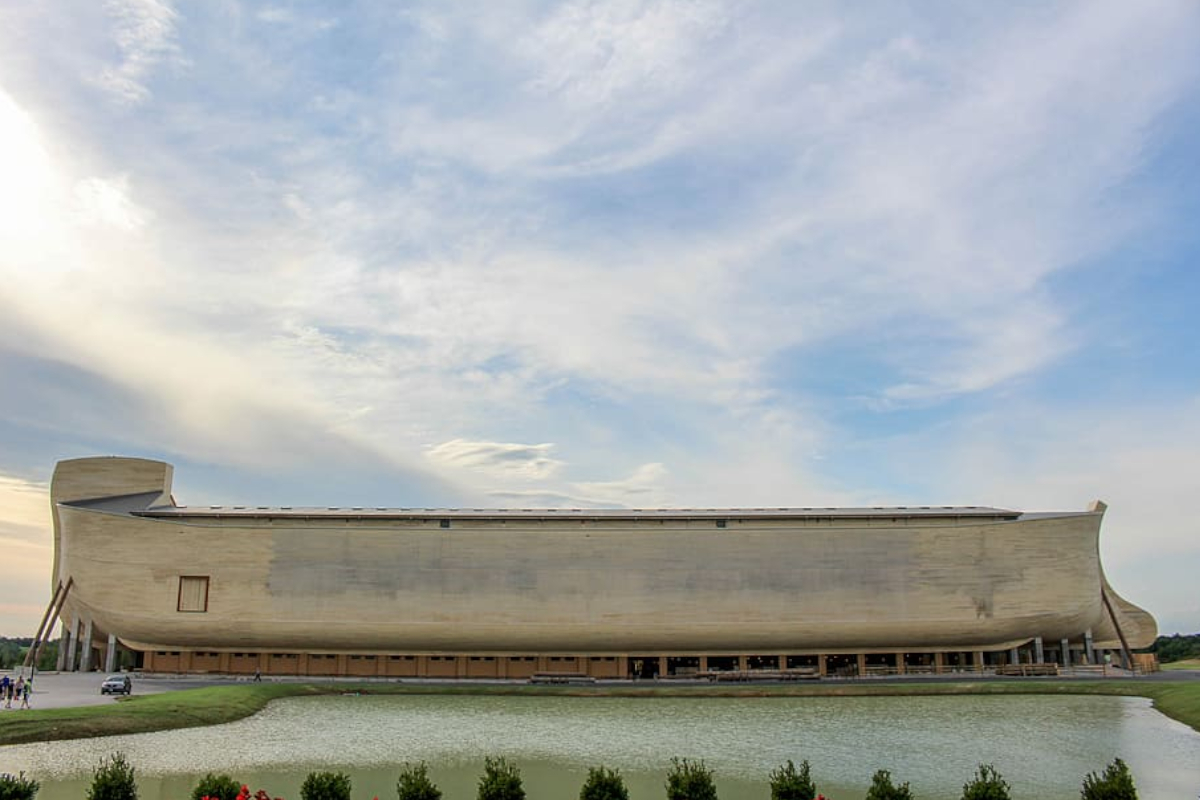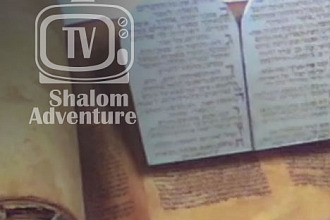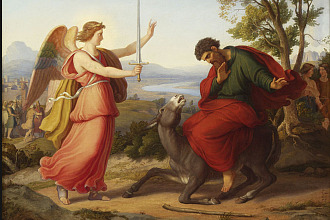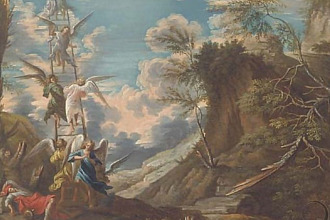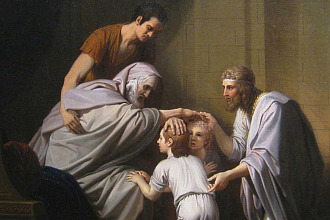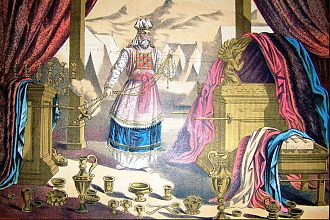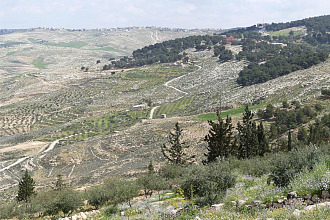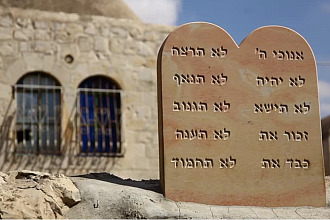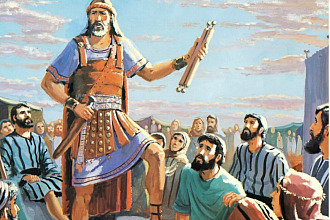Parasha for the Week: Noach: Genesis 6:9 - 11:32.
Aftarah for the Week: Isaiah 54:1 - 55:5.
Besorat Yeshua: Mark 10:17 – 27.
Overview
It is ten generations since the creation of the first human. Adam's descendants have corrupted the world with immorality, idolatry, and robbery, and G-d resolves to bring a flood which will destroy all the earth's inhabitants except for the righteous Noach, his family, and sufficient animals to repopulate the earth.
G-d instructs Noach to build an ark. After forty days and nights, the flood covers even the tops of the highest mountains.
After 150 days the water starts to recede. After 7 months, the ark rests on Mount Ararat.
Noach sends out a raven and then a dove to ascertain if the waters have abated. The dove returns. A week later Noach again sends the dove, which returns with an olive leaf in its beak.
After another seven days, Noach sends the dove once more; the dove does not return. G-d tells Noach and his family to leave the ark.
Noach brings offerings to G-d from the clean animals which were carried in the ark.
G-d vows never again to flood the entire world and gives the rainbow as a sign of this covenant.
Noach and his descendants are now permitted to slaughter and eat meat, unlike Adam.
The world's climate is established as we know it today. Noach plants a vineyard and becomes intoxicated from its produce. Ham, one of Noach's sons, delights in seeing his father drunk and uncovered. Shem and Yafet, however, manage to cover their father without looking at his nakedness, by walking backwards. For this incident, Ham is cursed.
The Torah lists the offspring of Noach's three sons.
The Torah records the incident of the Tower of Bavel, which results in G-d fragmenting communication into many languages and the dispersal of the nations throughout the world.
The Parasha concludes with the genealogy of Noach to Avram.
Embarrassment
The Torah states: "One who spills the blood of a person shall have his own blood spilled by man, for in the image of the Almighty He has made man" (Genesis 9:6).
This verse is also cited as a source that we must not embarrass another human being. What is the connection between murder and embarrassment? Rabbi Moshe Alshich explains that when a person is embarrassed his blood flow changes - his face reddens. The Torah tells us in this verse that every person is created in the image of the Almighty. Therefore, every person must be shown great respect. An attack upon a human being - whether it be upon a person's body or upon his sense of self - contains an aspect of an attack on the Almighty.
Chomos
The Torah states: "And God said to Noah: 'The end of all flesh is come before Me, for the earth is filled with corruption (chomos)'" (Genesis 6:13).
Instincts
The difference between instinct or training is described in this manner: if you taught cats to stand erect, balance trays and serve as waiters, they would be fine until you released some mice. The cats, forgetting all their training, would let the trays and dishes crash to the ground as they rushed about on all fours in pursuit of the mice. As humans we can train ourselves to behave in an acceptable, decent manner outwardly, but when something comes that tempts our instinct, we forget all we learned and fall. It is only through surrendering ourselves to God and allowing the Messiah to transform our instincts that we will have full victory.
AFTARAH Isaiah 54:1 - 55:5
This text of Isaiah is a beautiful text full of promises for Israel. God starts to describe the situation of Israel which is "a barren woman" a woman desolated, divorced but with a future. She will have many children. "Sing, O barren woman, you who never bore a child; burst into song, shout for joy, you who were never in labor; because more are the children of the desolate woman than of her who has a husband, says the LORD” (Isaiah 54:1).
Israel must, as a spiritual nation extend her tents; she has to be a light for the nations and depossessed the gods of the nations in order to help all the nations to worship the God of Israel "Enlarge the place of your tent, stretch your tent curtains wide, do not hold back; lengthen your cords, strengthen your stakes. For you will spread out to the right and to the left; your descendants will dispossess nations and settle in their desolate cities (Isaiah 54:2-3).
Even though God was angry, upset against Israel, he will get her back and will be her husband and her God forever, "Do not be afraid; you will not suffer shame ... For your Maker is your husband — the LORD Almighty is his name — the Holy One of Israel is your Redeemer; ... The LORD will call you back as if you were a wife deserted and distressed in spirit... For a brief moment I abandoned you, but with deep compassion I will bring you back” (Isaiah 54:4-7).
BESORAT YESHUA Mark 10:17 - 27
Parasha: The parasha ask the question, of what is good, how to get eternal life, among all the generation of Noah, only Noah and his family were able to be saved. "I have seen that you alone are righteous before me in this generation" (Genesis 7:1)
Besorah: Yeshua was walking in the street and a man come to him with the same question, a question about "good" and a question about salvation. "A man ran up and knelt before him, and asked him, "Good Teacher, what must I do to inherit eternal life?" (Mark 10:17). Yeshua wants to clarify his conception of "Good" and "evil": Yeshua says ""Why do you call me good? No one is good but God alone" (Mark 10:14; 15). This man was living in Eretz Israel, he should know this truth, the Tehilim (Psalms) taught this concept that only God is good.
It is an important idea of the Tanach (Bible) because if anyone could imagine that he is "good" enough to merit heaven and eternal life, then he is wrong. If God saved Noah it was just an act of kindness from God. Salvation, eternal life is always a gift from God.
Even the greatest prophets Moses and Isaiah needed to be purified by God (Isaiah 6:1-7).
Y'shua told us, "as in the days of Noach so shall it be at the coming of the Son of man" (Matt 24:37). We are quickly coming to the time when once again the earth is filled with corruption (chomos). The Messiah will return soon to take us with Him to the mansions in heaven He is preparing for us!

